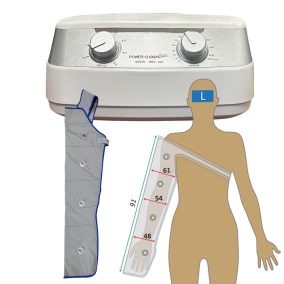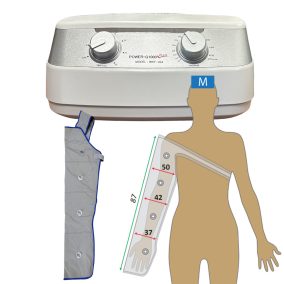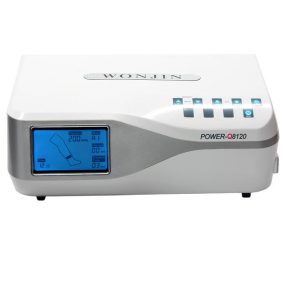Power Q-1000 Plus compression therapy unit arm set with L size arm cuff. For home compression therapy.
What is it used for?
- Treatment of mild to moderate lymphedema
- Reducing leg swelling caused by pregnancy-related varicose veins
- Treatment of swelling after breast removal surgery
- Alleviating symptoms caused by varicose veins
Price includes:
- Power Q-1000 device (1 pcs)
- Arm cuff: size L (1 pcs)
- Airhose: 4 leads (1 pcs)
Power Q-1000 Plus compression therapy unit with Arm compression therapy kit, M size arm cuff. For home compression therapy treatment.
What is it used for?
- Treatment of mild to moderate compression therapy
- Reducing leg swelling caused by pregnancy-related varicose veins
- Treatment of post-mastectomy arm swelling
- Relieving symptoms caused by varicose vein disease
Price includes:
- Power Q-1000 device (1 pc)
- Arm cuff: M size (1 pc)
- Airhose: 4 leads (1 pc)









